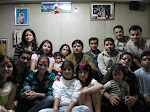Ajaya Bhadra Khanal
Kathmandu, November 18
So far, the Maoists have been theoretically adequate about their commitment to the idea of a democratic republic, gaining enough legitimacy to lead the government.However, their commitment to competitive politics has been seriously challenged, first by their practice, and now by their internal dynamics on the eve of an important party national meet.The dissatisfaction against Nepal’s peace process has been consistently voiced by a section of the CPN-Maoist, particularly Mohan Baidya “Kiran”.But never before since the Chunbang meeting three years ago, when the path of communist dictatorship overturned, has that voice of dissent been as strong as now.Both CPN-Maoist Chairman Pushpa Kamal Dahal “Prachanda” and Dr Baburam Bhattarai have been forced into a defensive position.Dr Baburam Bhattarai, however, discounted possibility of deviation from the party’s current path. “Let’s not speculate about the issues,” he said. “The party meet will clear all doubts that have been generated.”The coming national meet of the CPN-Maoist may or may not change the direction of the party, but it will certainly make the peace process more difficult. It will force Prachanda to make more compromises, and increase the distance between the Nepali Congress and the CPN-Maoist.The Maoist party as a whole is committed to the idea of Jana Ganatantra or People’s Republic although Prachanda and Dr Bhattarai have tried to redefine the idea in a form that is palatable to the international community. However, strong doubts have been raised about whether the Maoists wanted a genuine competition.Chakra Bastola of the Nepali Congress, who is convening its policy on federalism, said the Maoists had taken the world by surprise.“Everyone thought that they were totally in the peace process, but it seems they are embroiled in their ideology,” he said.Bastola said he had an unequivocal understanding of People’s Republic as communism. “It is a form of dictatorship,” he said. “This unsettlement, indecision, controversy and dual political agenda envisage that the peace process is still half-baked.”A section of the UML is also worried by the recent development. “Instead of internalising and taking ownership of the recent change, the Maoists are claiming that the achievement is nothing, and are preparing for another revolution,” Rajan Bhattarai, a scholar associated with the CPN (UML) said. He said the current debate in the CPN-Maoist indicated that they were willing to stray away from a peaceful course.The question of competitive politics is relevant because responsible Maoist leaders, including Dr Baburam Bhattarai are continually emphasising a condition expressed in the form of a question: What kinds of parties would be allowed to compete in Jana Ganatantra?The Maoists have an unequivocal answer. Only political parties opposed to feudalism and imperialism, and those in favour of overall social revolution can fit into that category.The internal politics of the CPN (Maoist) has made the issue more complicated. A circular floated by Mohan Baidya (Kiran) for internal party discussion points out some dangeroustendencies within the party, and intends to revert the party into the pre-2003 position. In 2003, the party had barely recovered from a split.
Source: The Himalayan Times


No comments:
Post a Comment